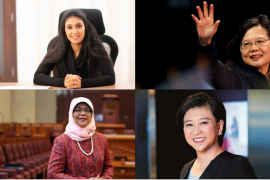Despite having more professional confidence, Black and South Asian women take at least two months longer than their white counterparts to land their first job after finishing school.
More than 3,500 persons in the UK participated in a poll conducted by Totaljobs and The Diversity Trust to evaluate the career paths of Black and South Asian women.
The poll showed that South Asian women needed 4.9 months on average to land their first job after completing their degree, whereas Black women needed 5.1 months.
The percentage was much more significant than that of their white counterparts, who secured a position in 3.4 months for men and 2.8 months for women.
Black and South Asian women face certain “structural and institutional impediments to thriving in their chosen careers,” according to Tinashe Verhaeghe, a race and ethnicity analyst at The Diversity Trust.
Despite this, Verhaeghe noted that the women she met with and polled “indicated confidence in themselves and a desire for employers to address their structural and unconscious prejudices to better their chances of success and experience less damage in the workplace.”
“There is enough proof that change is necessary; it is now up to employers and coworkers to take action.”
Although these women will probably find employment in the future, 66% of Black women and 62% of South Asian women said they felt they could “accomplish anything” in their careers once they had finished their studies.
This confidence in their careers was markedly higher than white men, of which 46 per cent said the same, and for white women, 38 per cent said the same.
Regarding the job application process, almost two-thirds of Black women (62 per cent) and 43 per cent of South Asian women said they had been discriminated against based on their ethnicity.
Additionally, 37 per cent of Black women and a quarter of South Asian women believe they have missed out on at least one job opportunity because of their ethnicity.
To counter this, some women admitted they had changed critical details about themselves to avoid bias.
Nearly one in five (18%) Black and South Asian women reported that they had changed their name on their CV to increase their chances of being hired.
To appear more appealing during interviews, several women have also mentioned the desire to codeswitch and alter their demeanour.
Seventy-five per cent of Black and South Asian women who responded to the poll said they try to be more accessible and personable in interviews to dispel unfavourable perceptions.
59% of those surveyed claimed that during the interview stage, they had experienced discomfort, patronisation, or intimidation because of their ethnicity.
However, issues still exist even when women have found employment. Seventy-nine per cent of Black and South Asian women claimed they had experienced job discrimination.
According to Wilson, the demands of Black and South Asian women must be included in organisational efforts to foster a more diverse and inclusive workplace.
Employers might think about the part their attractiveness and recruiting techniques to play in opening up opportunities in addition to internally examining steps to establish a diverse, egalitarian, and inclusive workplace.





Comments are closed.